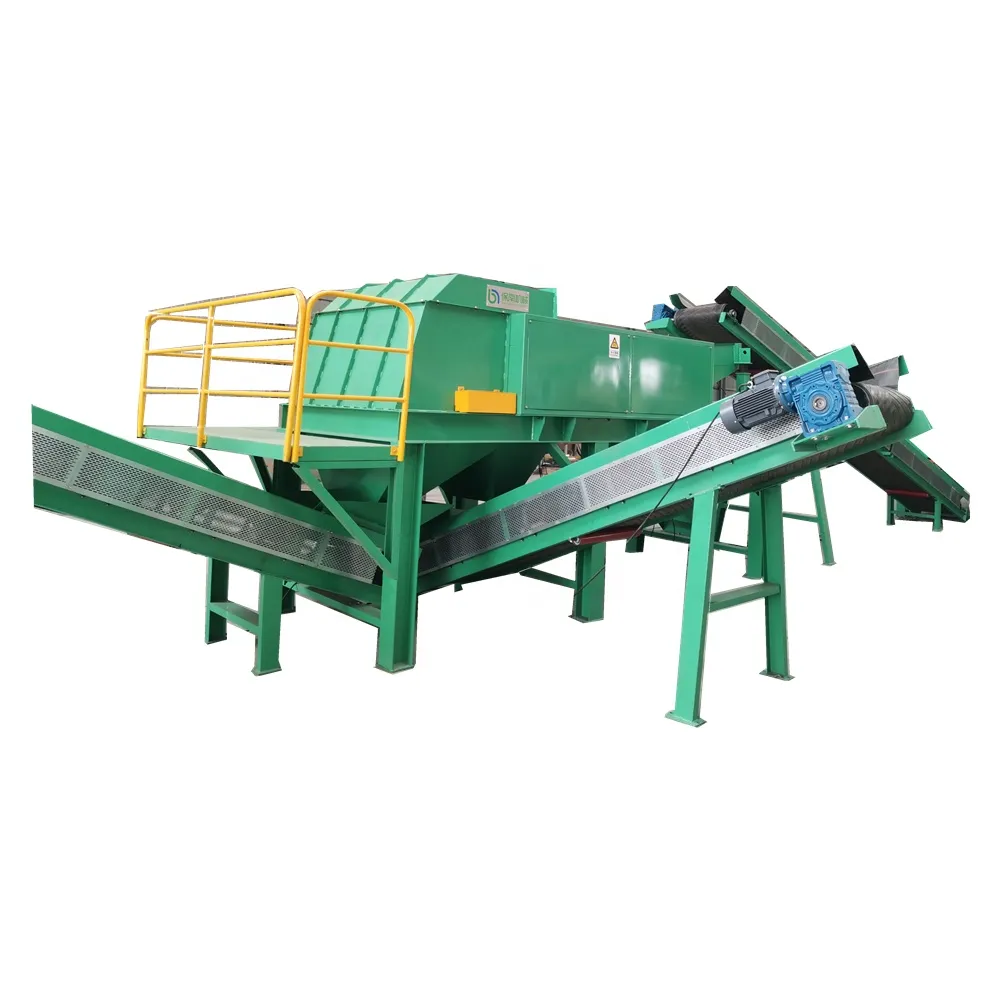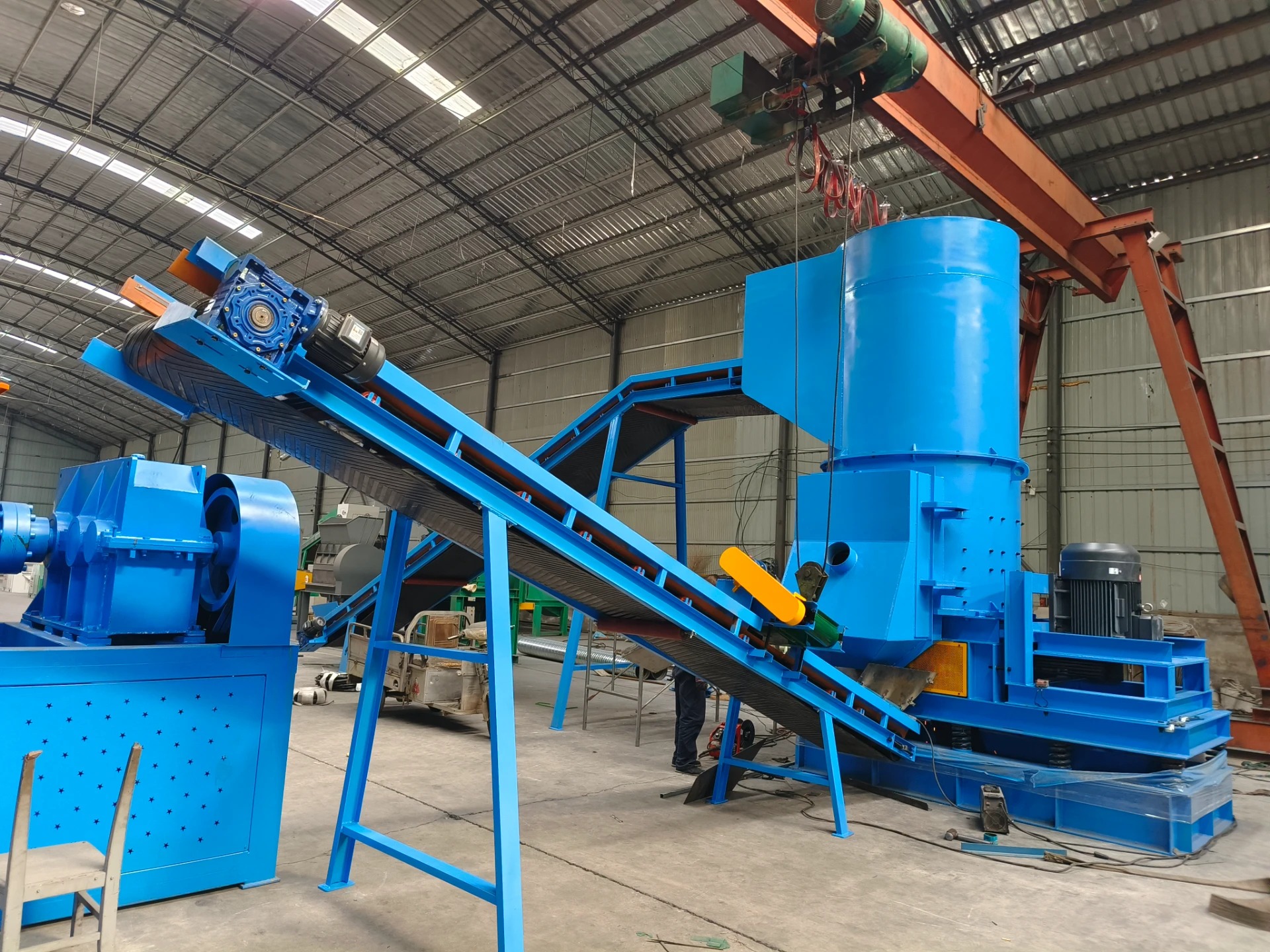

Jul . 07, 2025 07:08 Back to list

(aluminum can recycling plant)
Aluminum can recycling plants play a pivotal role in resource conservation and waste reduction. These facilities are engineered to process vast quantities of post-consumer aluminum cans efficiently, ensuring that valuable materials re-enter the production lifecycle with minimal loss. Recycling aluminum saves up to 95% of the energy required compared to primary aluminum production. According to the Aluminum Association, over 75% of all aluminum ever produced is still in use today, testament to the infinite recyclability of the metal. By diverting millions of tons of cans from landfills annually, modern aluminum can recycling plant
s not only provide environmental benefits but also underpin a multibillion-dollar global industry, supporting thousands of jobs across collection, processing, and remanufacturing sectors.
Today’s aluminum recycling plants are equipped with cutting-edge technologies that optimize every stage of processing. Automated sorting systems leverage optical sensors and eddy current separators to distinguish aluminum from contaminants. Sophisticated shredders reduce cans into uniform fragments, increasing surface area for effective cleaning and melting. One critical advancement is the closed-loop water recycling mechanism, which minimizes operational water usage by up to 85%. The integration of high-efficiency rotary furnaces enables the rapid melting of shredded aluminum at temperatures exceeding 660°C, while specialized air filtration units drastically cut particulate emissions. Advancements in home aluminum can shredder design have also democratized recycling, empowering small-scale businesses and households to participate directly in can pre-processing, serving as the initial step in decentralized recycling ecosystems.
The global aluminum recycling market has witnessed robust growth in the past decade, driven by increasing consumer awareness and stringent regulatory frameworks. In 2023, the worldwide recycled aluminum market was valued at USD 59.7 billion, with projected expansion to USD 79.3 billion by 2028 (CAGR of 5.8%). Environmental metrics are even more striking: recycling one ton of aluminum cans prevents the release of 14,000 kWh worth of energy and over 9 metric tons of CO2. A single aluminum can, when recycled, is back on store shelves within 60 days, illustrating the phenomenal turnaround speed of modern plants. These figures underscore how the aluminum can recycling industry is indispensable for circular economy initiatives and critical climate action targets worldwide.
Selecting the right aluminum recycling plant manufacturer is a nuanced decision, influenced by capacity needs, operational flexibility, technology suite, and after-sales support. Here, we present a comparative table of leading global vendors, benchmarked by key performance indicators:
| Manufacturer | Processing Capacity (tons/year) | Shredding Technology | Energy Consumption (kWh/ton) | Turnkey Installation | After-Sales Support |
|---|---|---|---|---|---|
| Metso Outotec | 80,000 | Dual-Stage Hammermill | 550 | Yes | Global 24/7 Remote |
| Recoquip | 30,000 | Vertical Shredder | 610 | Yes | Regional In-Person |
| Stokkermill | 25,000 | Twin Shaft Slow-Speed | 580 | Optional | Remote Monitoring |
| Wendt Corp. | 100,000 | High-Torque Shredder | 500 | Yes | Comprehensive SLA |
Manufacturers often differentiate by offering intelligent plant control systems, modular expansion capability, and advanced emission abatement technologies. In-depth evaluation of such parameters greatly enhances plant longevity and return on investment.
The aluminum recycling landscape is diverse, encompassing large-scale industrial facilities, municipal recycling operations, and compact units engineered for local or on-site use. Plant configuration depends on input material volume, contamination levels, automation needs, and desired product output quality. Industrial solutions prioritize throughput and efficiency, integrating rapid-feed conveyors, automated bale opening, and bulk material storage. Conversely, smaller plants—often attached to municipal waste management facilities—may incorporate flexible, modular shredder systems with decentralized control panels for adaptive operation.
Customization doesn’t stop at capacity. For clients with unique constraints—such as urban footprint limitations, energy supply variability, or strict emissions regulations—engineers can design aluminum recycling plants with tailored furnace sizing, adaptive dust collection protocols, and innovative waste heat recovery systems. OEMs collaborate closely with clients, offering feasibility studies, simulation-based optimization, and life-cycle cost analysis to ensure maximized performance and sustainability compliance. Integration of compact home aluminum can shredder units further bridges the gap for schools, offices, and local businesses seeking localized recycling solutions.
Real-world deployments showcase the versatility and impact of advanced aluminum recycling technologies. In Germany, a municipal facility equipped with modular shredders and automated optical sorters processes over 400 million cans annually, supplying clean aluminum ingots to regional manufacturers for automotive and packaging uses. In the United States, a leading beverage corporation’s dedicated recycling plant features a fully closed-loop system, reducing waste output by 97% and slashing water usage through advanced recycling techniques. Local governments in Japan have pioneered the integration of home aluminum can shredder units as part of neighborhood sustainability initiatives, boosting resident participation rates above 83% while delivering high-purity scrap to national smelters.
These successes are echoed globally, as organizations in sectors ranging from aerospace to construction invest in state-of-the-art aluminum recycling infrastructure. Each case illustrates the adaptability of the core technologies, the synergistic benefits when combined with public participation campaigns, and the measurable environmental and economic returns achievable at both macro and micro scales.
As the aluminum can recycling plant sector evolves, new opportunities arise for integrating home aluminum can shredders into recycling ecosystems. Distributed pre-processing enables higher material purity, lowers logistics costs, and fosters consumer engagement. The rise of urban mining, decentralized recycling hubs, and smart waste management is expected to reshape the industry over the next decade.
Forward-looking manufacturers are investing in digitalization, including IoT-based tracking and dynamic efficiency optimization, to further reduce environmental impact. With governments and corporations targeting carbon neutrality by 2050, aluminum recycling plants and associated home aluminum can shredder solutions are poised to become foundational to practical sustainability strategies. Companies, communities, and households that proactively pioneer these technologies will reap both economic and ecological dividends, ensuring a lasting contribution to resource stewardship worldwide.

(aluminum can recycling plant)
Latest news
Troubleshooting Common Eddy Separator Problems
NewsJul.04,2025
The Role of Metal Recycling Plants in Circular Economy
NewsJul.04,2025
The Impact of Recycling Line Pickers on Waste Management Costs
NewsJul.04,2025
Safety Features Every Metal Shredder Should Have
NewsJul.04,2025
How Industrial Shredders Improve Waste Management Systems
NewsJul.04,2025
How Cable Granulators Contribute to Sustainable Recycling
NewsJul.04,2025